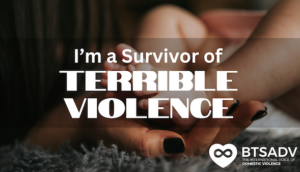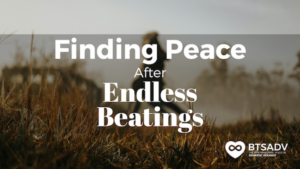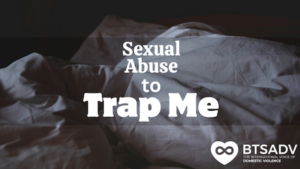Disclaimer: No survivor should ever feel the pressure to open up and attempt to heal others during or after their healing process. How you handle your trauma is your business. The intentions of this article are to uplift those survivors who are already motivated to help others.
When I decided to share my trauma publically, I was terrified of the backlash. Instead, after I finally hit publish on the article that would be shared on my university’s online magazine, a weight lifted off my shoulders. I stopped thinking about what people could say to hurt me. A heavy secret I’d bore for two years was no longer mine; I set it free and was left feeling lighter.
I was lucky that I didn’t receive much backlash for sharing my story. However, what minimal negative response I did receive has meant nothing compared to the survivors who have reached out to me thanking me for helping them feel less alone, and asking for help.
The first step I made as a survivor in order to help other survivors, was to heal myself. Therapy, journaling, hanging on to people I could trust. If I hadn’t taken that step, I would not have the space in my mind or heart to lend a hand.
Being open and honest about my experience is what I did next, and continue to do. This helps other survivors know they can talk to me when they need someone to turn to. Because I already took the necessary steps to heal on my own, I’m seldom triggered by these guidance-seeking conversations. Sometimes survivors just need to hear that they aren’t crazy. They need to be believed. Believing survivors is the biggest way to help them, not just initially, but always.
For a while, I thought it was my duty to change the mind of those hurting the movement. We live in a world full of victim-blaming and shaming. Even those close to us can be misguided. I’ve had relatives share videos with me, saying that my traumas happened to me because I wasn’t strong enough to say “no.” I’ve had relatives tell me I need to learn how to stand up for myself better. I’ve had relatives say they are worried about the witch hunt on men, and that most women are lying about their experiences. These relatives are good people, with good intentions and good hearts. But they do real damage. Having those you love not in your corner lengthens the trauma and can make you feel like you’re crazy. This is why survivors must be united in ending domestic violence.
When I’ve found myself ready to get out of uncomfortable conversations — although this is never a victim’s job — the best thing I’ve communicated has been, “Hey, this topic triggers me. Let’s move on.” I stopped trying to change the mind of people who haven’t gone through what I’ve experienced or who aren’t united in the cause when I realize I’m more important. Every past, present and current survivor is more important. Reshifting my energies solely to help survivors has been detrimental to not only my personal healing, but also in my ability to help others.
An easy way to give hope to survivors is liking their comments on social media threads, or direct messaging them that you believe them. These actions don’t trigger me or my social anxiety. A simple “like” is so validating.
Now, I get involved in not only the conversation but the movement. There are countless organizations people can join in order to help survivors in more ways. I found Break the Silence Against Domestic Violence on Volunteer Match. If you’re interested in volunteering with BTSADV, you can check out our available positions here.
There are all kinds of volunteer positions out there. You don’t have to table, or visit with survivors, or speak at publicity events. Volunteering for a cause you’re passionate about can be as simple as designing a poster for an organization.
Charity is good for the soul. It’s a night and day difference regarding my emotions now that I’m volunteering with BTSADV. Not only is it educational and empowering, but service has pushed the bitterness out of my heart and proved my strength to myself.
When I go through my darkest times, feeling alone and fragile, the best things for me are just to be told I matter. Someone’s horrifying actions do not define me. Being told I am believed, and that other survivors are believed, empowers me to remember grieving is always okay.
So, whoever is reading this: You matter. I believe you. You are more than what happened to you.
If you or someone you know is in an abusive relationship, there is help. You can visit the Break the Silence Against Domestic Violence website at www.breakthesilencedv.org or chat with one of our helpline advocates at 855-287-1777.










